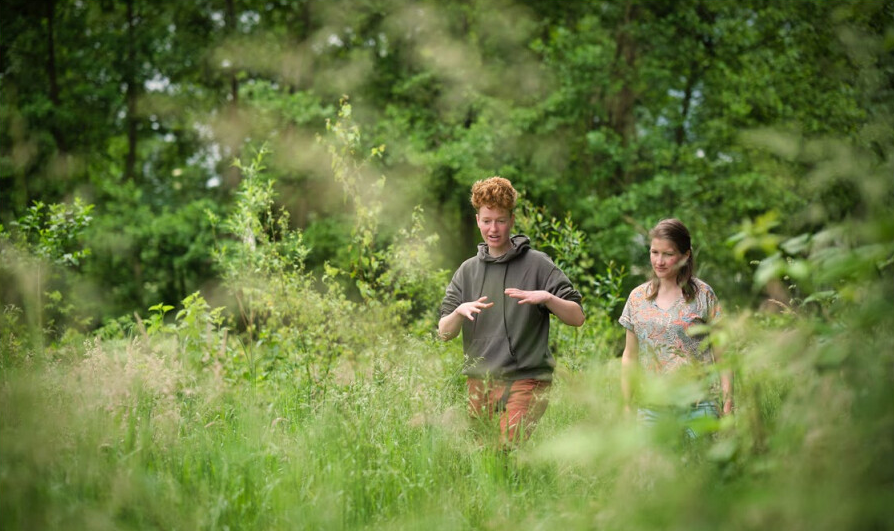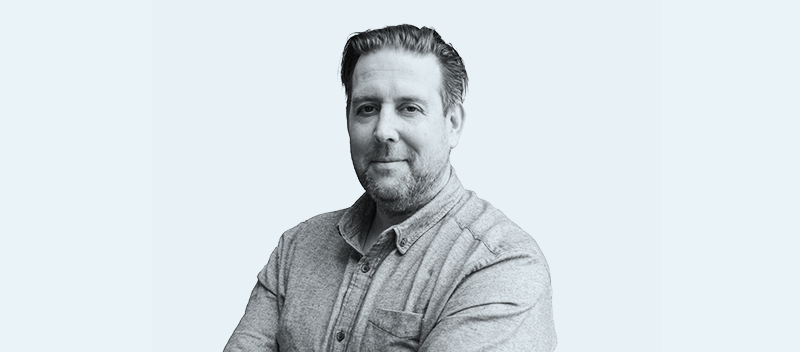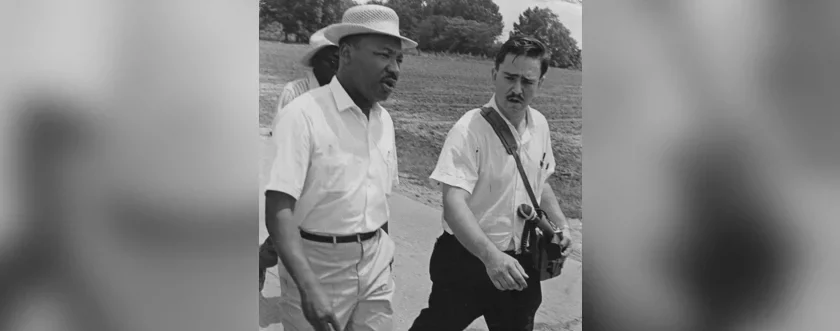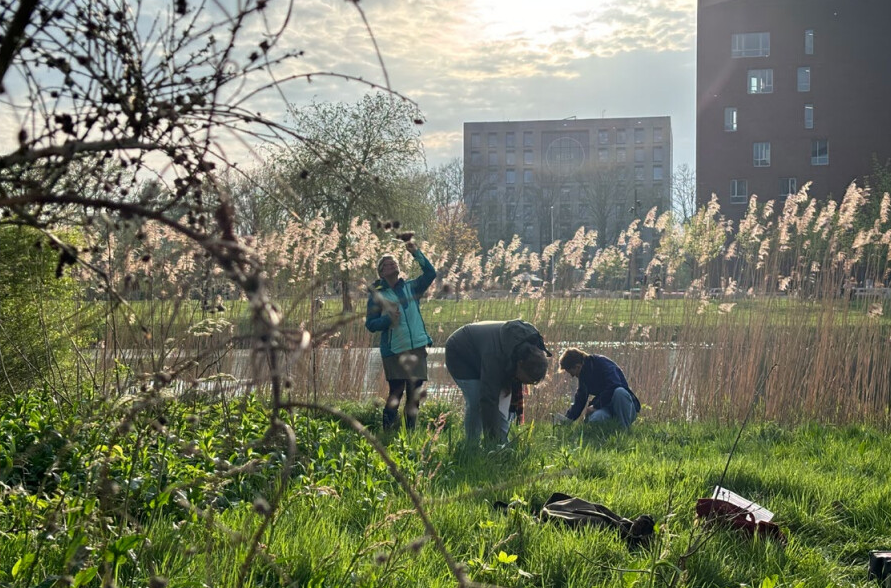Reineke van Tol is both a teacher and a PhD candidate in the Forest and Nature Policy chair group. She has developed the ‘outdoor course’ Wild Perspectives, and is doing research on the education impact of the course in an appropriate fashion: through walking interviews. Resource went for a walk with Van Tol to find out more about that.
‘Relational education is about questions such as: who are you in relation to nature, what is your attitude to it and what do you do with it – what is your role in the world, with all the problems we face, like climate change and loss of biodiversity? And how can you contribute to a better world without going under? With Teacher of the Year Ignas Heitkönig I’ve developed the summer course Wild Perspectives to look at these kinds of questions.
With this approach I am trying to bring the unconscious into my research as well
The students spend a week outdoors in nature, and the whole week is all about changes of perspective: to think in new ways about nature, and to look at nature with other, non-human eyes.
‘Most nature education is about nature, but doesn’t involve nature. In Wild Perspectives we do it differently. For example, we walk to the Utrechtse Heuvelrug in two days, a kind of journey through time during which we ponder the development of the planet and the place of humans in that. We make use of writing workshops and meditation and theatre techniques to practise adopting a non-human perspective. And at the end of the week, the students give a “storytelling performance”, often with music and other art forms.
‘We have taught this course now for the third year running. Part of my PhD research is research on the impact. My research question is about precisely what the learning experiences did: whether students undergo transformations. To find that out, I invite them to go for a walk to the places where they had learning experiences and acquired – I hope, at least – meaningful memories.’
Going outdoors
‘I looked for a research method that not only provides the human/scientific perspective, but also the relational one with regard to nature. So I thought: I must go outdoors with my research participants — out into nature, on foot. Hardly anyone does that. Since the Covid pandemic, lots of interviews take place online, which is handy for recording and transcribing them. But you don’t generate the same memories and emotions online as you do outdoors, at the locations where the learning experiences took place.
‘I have three different courses as case studies, all of which were run near Wageningen. With every student, I went back to the place used for “their” course. I find that this taps into different levels of interaction than “regular” interviews do. And I stimulate that too, through micro-phenomenology, as it is called: appealing to embodied experience and emotions using meditation techniques. I invite the students to sit down in the woods or fields, to focus their attention on their breath and what they can hear and smell around them. And then to go back in time, as it were, to the experience they had at this spot before.
‘Some researchers wonder if the setting doesn’t influence an interview too much. But I do that quite deliberately so that people reflect more deeply and draw on their feelings – with this approach I try to bring the unconscious into it as well. So that’s an interesting research question right there: is this permissible? Of course I do pay attention to consistency in the method. I go back to the course location with all my participants, I do the same meditation every time, and I ask the same questions.’
Grateful
‘Most students say that this approach took them right back to the previous experience, including the feelings that went with it. So it wasn’t just a mental exercise. They also said that walking put them at ease so they felt free to talk about very personal things. That is certainly relevant in this context, because these courses often stirred up deep emotions. Several students thanked me at the end of the interview because they were able to relive the valuable experience they had on the course. I thought that was quite special. It seems that I am doing something that matters to students. The fact that I’m contributing to knowledge about walking interviews is a nice side benefit. Not much is known yet about walking interviews as a research method: I’ve only found one or two academic articles about them that I found solid enough to use.
‘I think walking interviews are of particular interest to WUR. Much of our work is about physical things such as nature or agriculture, which involve research locations you can go to and interact with. And it’s so simple, taking people out of doors, but it does lead to a different kind of conversation. The same goes for education. A nature course taught outdoors, like Koen Arts’s course Anthropology of Outdoor Skills, has a very different effect than a nature course taught in a lecture theatre or classroom.’
Matthijs Schouten: ‘Let us love’
Van Tol has had a passion for the subject of relational nature education ever since her Master’s thesis. She wrote that thesis about NatuurWijs, a foundation established by the Dutch Princess Irene, which gives children the experience of immersion in the nature ‘that they are part of’ (in the foundation’s words). Her supervisor was professor of the Ecology of Nature Restoration Matthijs Schouten, who retired in 2021 and recently also retired as the ‘in-house philosopher’ at the Dutch forestry commission Staatsbosbeheer. At the symposium to mark the occasion, he gave a moving lecture about the relationship between humans and nature, ending with ‘let us love’. The Dutch text can be read on natuurcollege.nl.

 Teacher and PhD candidate Reineke van Tol (right): ‘I think walking interviews are of particular interest to WUR’. Photo Guy Ackermans
Teacher and PhD candidate Reineke van Tol (right): ‘I think walking interviews are of particular interest to WUR’. Photo Guy Ackermans 

